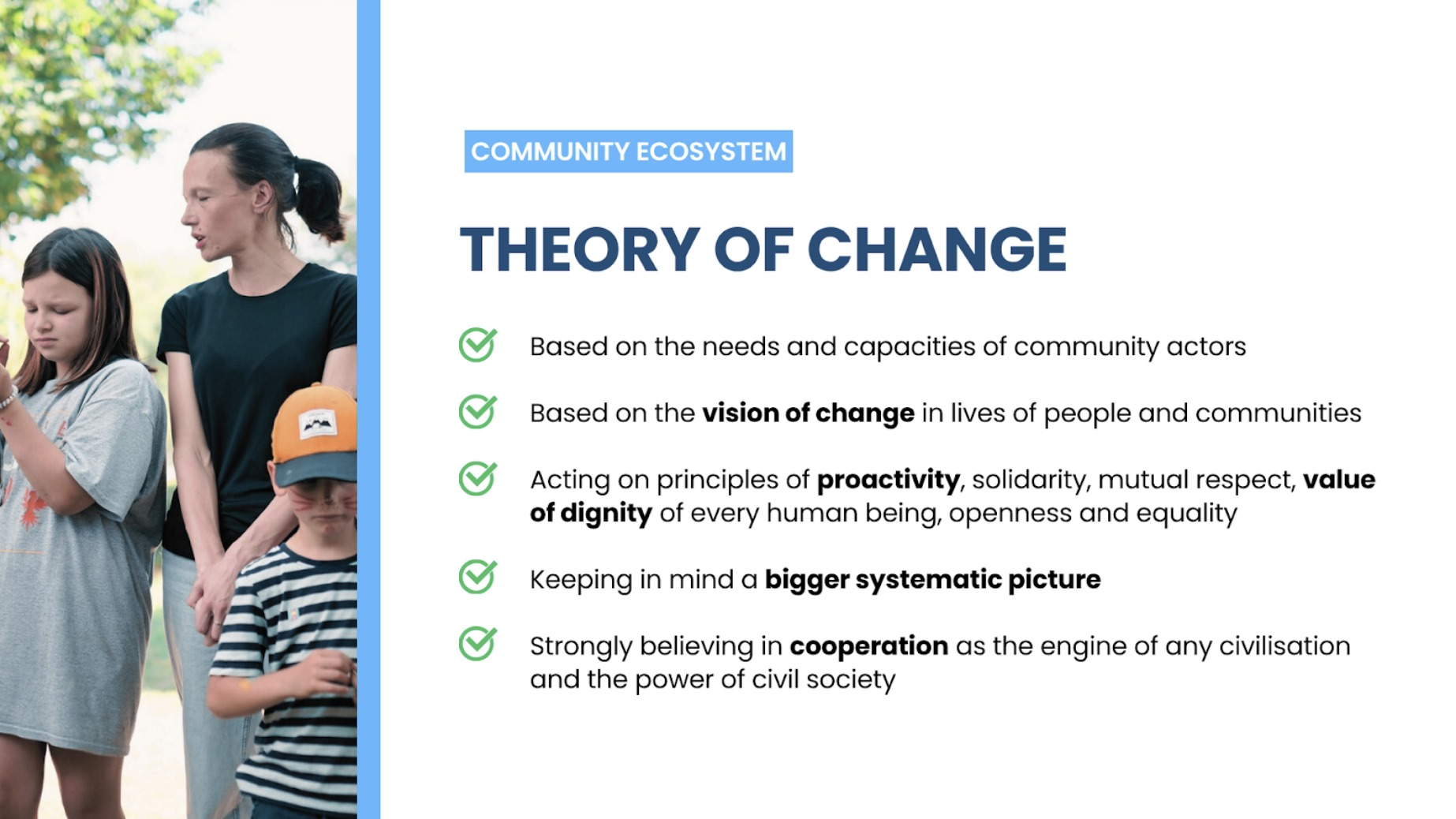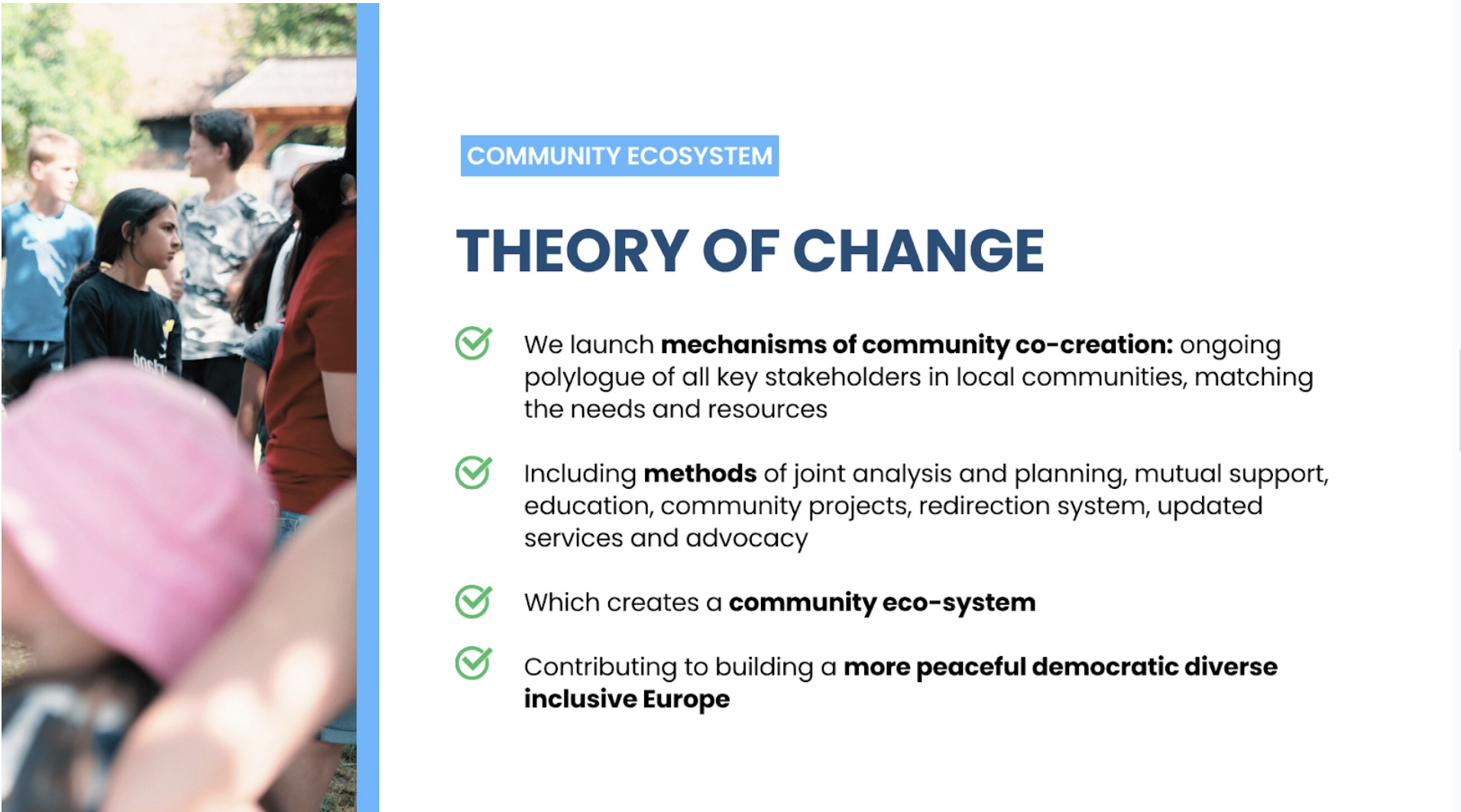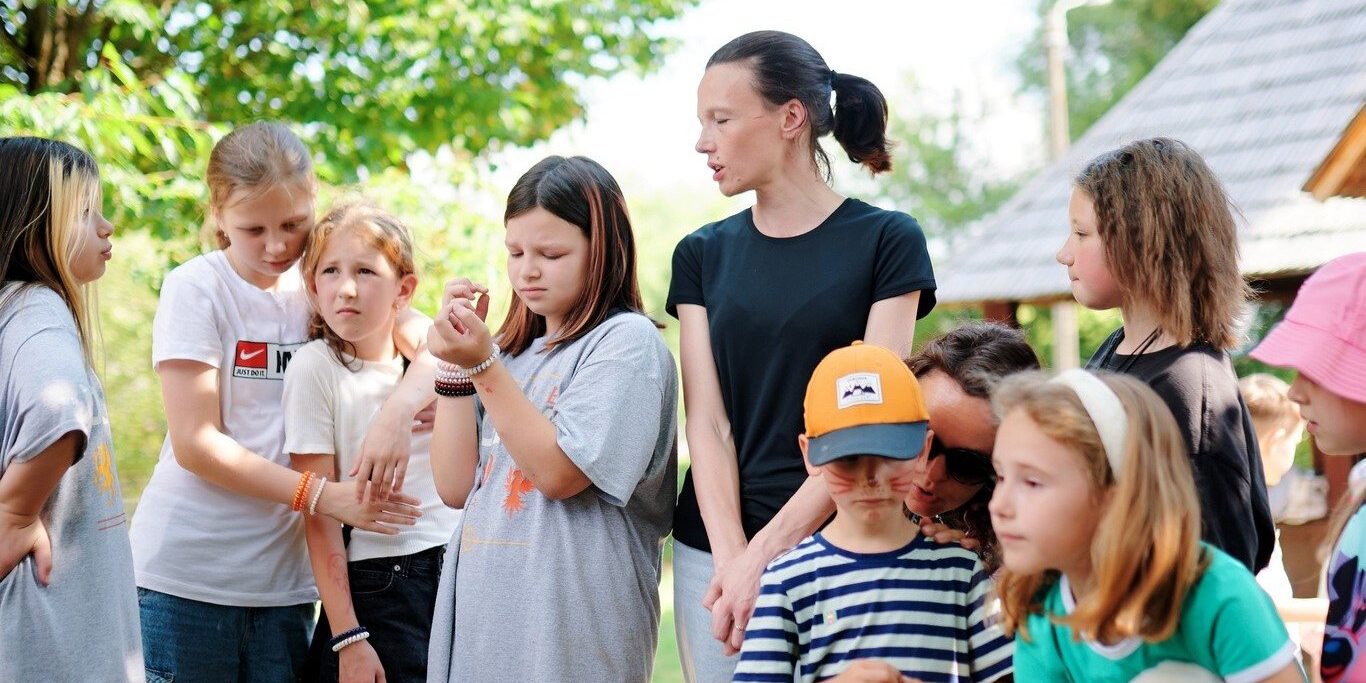We are excited to announce the successful completion and finalisation of our Theory of Change (ToC) document for the eDU Hubs and Mobile Centres (EHMC) project.
This is a foundational milestone, as the ToC serves as our strategic roadmap, articulating why change is needed, what change is desired, and how the EHMC model will achieve sustainable integration for Ukrainian refugees in Europe.
This strategic map ensures all project activities—from language classes to employment mentoring—are connected to a single, powerful vision.
Why a Theory of Change is Critical Now
Millions of Ukrainians remain in Europe under the Temporary Protection Directive (TPD). While the TPD provides immediate safety and rights, its temporary nature creates long-term uncertainty. The time for emergency aid is ending; the time for sustainable integration is now.
The EHMC project, co-funded by the European Union, directly addresses this shift. Our approach moves beyond traditional, fragmented services to create a holistic ecosystem that supports individuals and strengthens the communities hosting them.
Based on our recent Needs Assessment, we are focusing on five interconnected priorities:
- Skills and Employment: Helping refugees enter the labour market effectively.
- Essential Services: Ensuring access to education, childcare, and health.
- Psychosocial Support: Aiding recovery from trauma and building resilience.
- Social Inclusion: Creating opportunities for community participation.
- Cohesive Communities: Fostering mutual understanding between refugees and locals.

 The Core Vision: Moving Beyond Temporary Protection
The Core Vision: Moving Beyond Temporary Protection
Our long-term vision is a future where Ukrainian refugees achieve stability, independence, and a genuine sense of belonging. We define this desired state across four key dimensions:
- Economic Inclusion: Refugees secure stable employment on fair terms, with their professional qualifications being recognised.
Wellbeing and Resilience: Individuals and families access necessary psychosocial support to recover from displacement and manage ongoing stress. - Social Cohesion: Host communities embrace diversity, reducing tensions and creating shared spaces where everyone interacts on equal terms.
- Children and Youth: Young people adapt smoothly to new school systems and grow up with access to the resources and mentoring that build confidence.
Our Medium-Term Goals (In 18 Months):
The ToC sets measurable goals for the pilot phase that will lay the groundwork for this long-term vision. For refugees, this includes improved language skills (a top need identified in our assessment), better access to the labour market, and greater availability of childcare. For host communities, the goals focus on stronger social cohesion and more effective use of existing services through better coordination.
The EHMC Model: A Holistic and Co-Created Ecosystem
The EHMC project operates on four guiding principles that ensure relevance and sustainability:
- Holistic: Recognising that challenges are interconnected (e.g., you can’t work without childcare, and you can’t integrate without language skills), we combine all services into one hub-and-mobile ecosystem.
- Inclusive: Our model serves a broad spectrum of refugees while intentionally engaging host community members in shared activities.
- Co-created: We treat beneficiaries as active partners, inviting them to co-design activities and provide feedback to ensure our solutions are practical and trusted.
- Scalable and Transferable: The model, which started in Romania and has been adapted for Slovakia, is designed to generate evidence that can be adopted by other communities across Europe, maximising its European added value.
Our Coordinated Activities
To achieve our goals, our hubs and mobile centres will deliver a comprehensive package of integrated activities:
| Priority Area | Key Activities |
| Education & Language | Accessible language courses and digital skills training |
| Employment Pathways | Mentoring, career counselling, and job-matching with private sector partners. |
| Childcare & School Support | Providing childcare solutions and after-school support to enable parent participation. |
| Psychosocial Support | Counselling services, group activities, and peer support mechanisms in safe spaces. |
| Community Cohesion | Organising shared cultural events, excursions, and intercultural workshops to reduce isolation and build trust. |
Grounded in Evidence, Powered by Partners
The Theory of Change isn’t theoretical; it is evidence-based and practice-driven. It was developed using:
- Empirical Data: Findings from our Needs Assessment survey of over 200 Ukrainian refugees.
- Lessons Learned: Practical insights from YMCA’s existing hub and mobile centre work in Romania and Slovakia since 2022, which proved the value of integrated services and mobile outreach to rural areas.
- Stakeholder Consultation: Input from local partners, civil society, and authorities confirmed that coordinated, community-based solutions are the most effective way to combat fragmented services.
This collective effort, involving local authorities, businesses, schools, and healthcare providers, ensures that the EHMC model is a truly whole-of-society approach, aligned with EU-wide integration strategies.
The Theory of Change now moves us into the operational phase, guiding the upcoming Pilot Roll-Out Plan and ensuring our efforts lead to meaningful, lasting change.
Read the full Theory of Change document for details on expected outputs, monitoring frameworks, and risk mitigation:
“Edu Hubs and Mobile Centres” project is supporting the integration of Ukrainian refugees and host communities. Co-funded by the EU (ESF+ Social Innovation+ Initiative) and Accenture.








